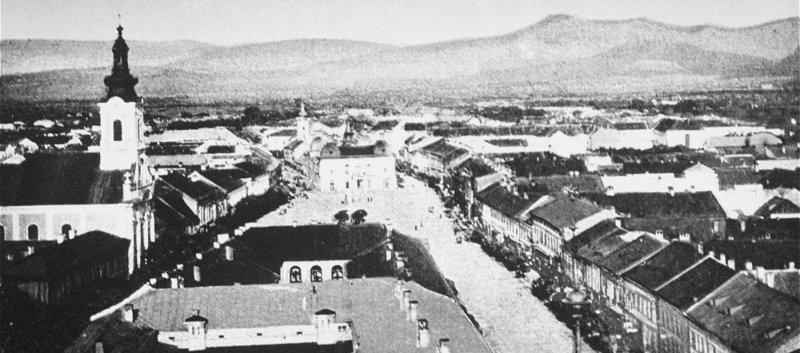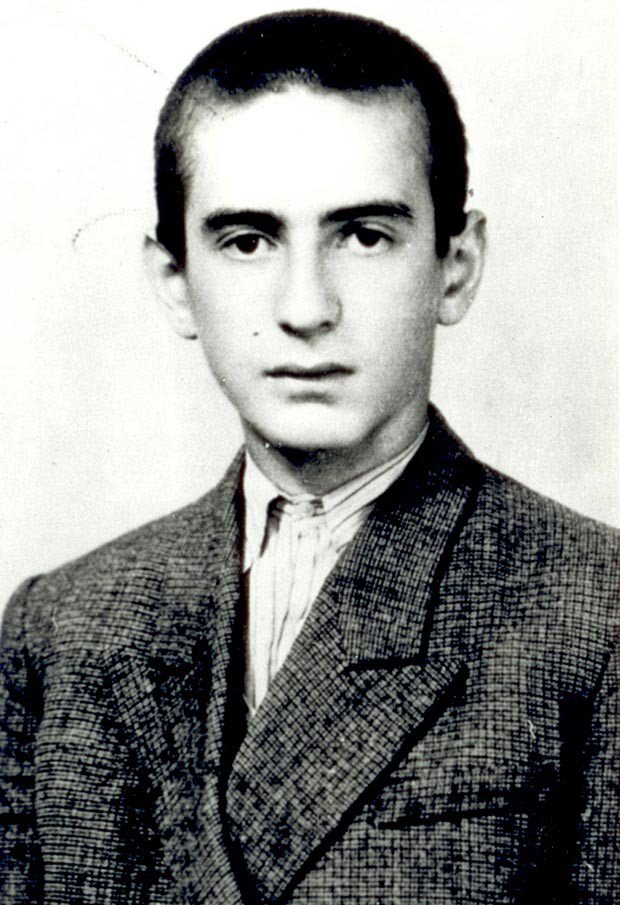Elie Wiesel's Biography - Ch 1

3rd November 2019
Sighet in WWII
As promised, here is the first installment of Year 9s biography of Elie Wiesel's experience during the Holocaust. This chapter has been contributed by Zain Mohamed, Ilham Mvungi, Sembatya Mkunde and Vivek Gohil.
Chapter One
Elie Wiesel was born in a small town called Sighet in modern-day Romania in 1928. He was born into a very loving and very religious family. He had three siblings; Hilda, his oldest sister. Bea, his other older sister and Tzipora, his younger sister. His father had owned a grocery store, that Elie loved to work in whenever he had the opportunity to do so. His father was a people person - a person who really cared for the community. Otherwise, Elie loved nothing more than to read books and devote his time to his faith.
It was his faith that led him to speak to a man who lived in Sighet - Moishe the Beadle - about studying the Kabbalah. Moishe the Beadle was a man not taken very seriously by the community - he was the poor man, the man that people poke fun at. Elie's own father did not approve of Elie studying the Kabbalah, he felt that Elie was too young to study topics like this. Nonetheless, Elie continued to study under the direction of Moishe the Beadle. This all changed, however, when in 1941 Moishe the Beadle was caught up in the first Jewish transportation from Sighet. Elie spoke about how, despite this, life seemed to continue as normal, as if nothing had nor would happen to effect his own circumstances. That was until Moishe the Beadle retuned to Sighet with traumatic news.
Moishe recalled to the Jewish citizens of Sighet that he had managed to survive and escape from a mass murder conducted by the Gestapo in Hungary. Moishe recalled how he witnessed Jewish prisoners dig large ditches, before they were summarily executed and placed inside the very ditches they themselves had dug. Moishe was adamant that he survived so he could return to Sighet to warn the citizens of the fate that awaited them if they did not act quickly. Unfortunately, people in Sighet continued to laugh at Moishe the Beadle - how could they possibly take him seriously? Life returned to relative normality after Moishe's warnings about the fate that could befell the Jewish citizens in Sighet.
By 1944, however, things began to change. The Hungarian government elected a pro-Nazi party into power and the German advance toward Romania began in earnest. Within weeks, Jews in Budapest had been rounded up, transported out and summarily executed. Yet still, the people in Sighet did little to prepare for this invasion. Life continued on as normal. That was until German soldiers finally arrived in Sighet. Elie commented on how 'polite and pleasant' they seemed to be. They didn't seem hostile and the people in Sighet felt that the stories they had heard before were just exaggerated lies. Things changed, however, when the Jewish Passover passed. Jewish citizens were forced into small areas in the city (a process that was happening in different European cities) - what became known as ghettos. Life in the ghetto was crowded and all Jews were forced to surrender their valuable items and wear Golden Stars but Elie commented positively on how it managed to bring the community together, literally.
One night, Elie's father was summoned to an elders meeting where he was informed that the 'transports' or deportation would begin the very next day. Luckily, Elie's family were not to be deported with the first group but would leave in a few days time. Every family had to pack only items that they would desperately require - luxury and valuable items had to be left behind. The day for Elie's family's deportation came; Elie recalls how they had to stand to attention for hours, waiting for the order of their deportation. Soon, they were herded into cattle trucks bound for some place Elie had no knowledge of. The trucks rolled on through the darkness at a pretty constant speed. The atmosphere inside the trucks was restless, not just because they were extremely crowded and dehydrated but because Mrs Schächter delusionly yelled out "Look! A fire! Over There! A fire!". Her cries were only stamped out, when she was bound and gagged. Elie was aware that Mrs Schächter had lost her husband and son in the earliest deportation - he felt desperately sad for her.
Elie Wiesel as a young man.





